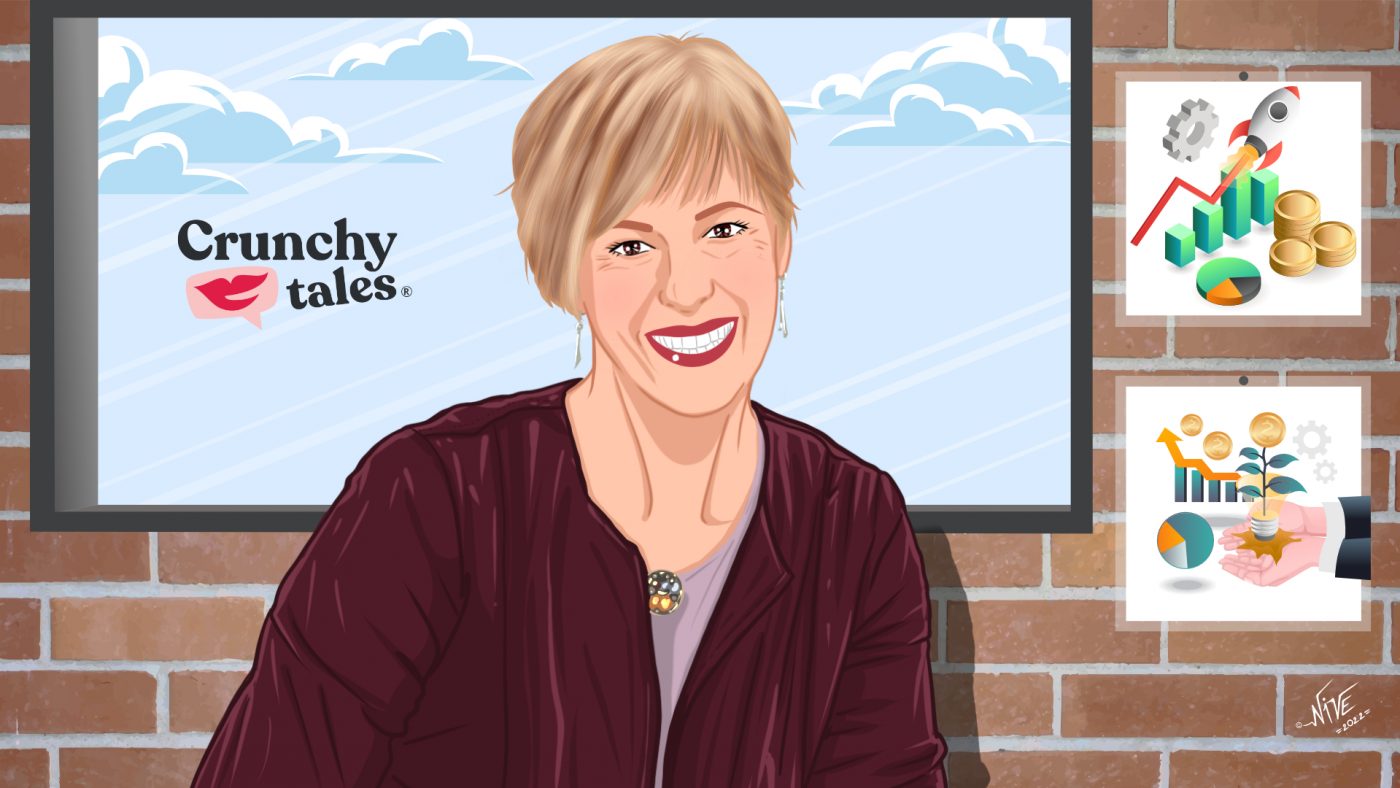Barbara Provost: “Becoming Financially Fearless Is Possible At Any Age”
Can women ever become financially fearless? Barbara Provost, an education consultant in the financial industry, thinks so.
The president and founder of Purse Strings, an online platform that offers “accessible guidance and tools for women to make informed decisions about their financial future“, believes we are an overlooked force by the market but in order to speak out, we need to have time and space to learn at our own terms.
In fact, even though planning for retirement, buying a house, purchasing insurance or deciding on whether to keep the house when going through a divorce are seen as major challenges for many of us, women can successfully face these situations when given the right tools.
“Women need a space where they can ask their questions, get answers, learn, feel confident and competent to make smart financial decisions. Also, women needed great, top-tiered financial professionals who understood them, would take the time to answer their questions, give them the time to think through their decisions, follow them up and be a part of their financial team“, she said to CrunchyTales.
That’s what Purse Strings is made for: to provide information and resources to its community of women on financial topics counting on a network of vetted professionals who specialize in serving them.
Barbara, what was the spark of inspiration that propelled you to start Purse Strings?
As an education consultant in the financial industry, I could see how financial institutions were overlooking the female market. None of the marketing materials spoke to me as a woman, in my life situation, and what I thought I might need financially. They also failed to answer any of my questions about the product.
The sales process was linear and was usually designed to result in a sale – and if it didn’t, the sales professional was told to move on to the next prospect. What’s more, all the materials were full of financial “jargon.”
Also, fast forward to my own divorce, I met other bright, smart and talented women who revealed their own insecurities about money to me. They didn’t know if they could afford to get a divorce and weren’t sure of household finances, much less long-term investments. I’d run my Saturday morning errands only to find women of retirement age working retail, bagging my groceries or stocking shelves.
That made me wonder why these women were working in these types of jobs.
The interconnection of these observations and experiences led me to commission a researcher to find out how financial institutions were working with their female consumers and how women were prepared for retirement. The data confirmed all of my thoughts. As reported by The Harvard Business Review: “Financial services wins the prize as the industry least sympathetic to women—and one in which companies stand to gain the most if they can change their approach”.
I then followed up my research with many focus groups to ask women about money, their feelings, insights and how their thoughts about money were formed. Once again, all my research was proved in one sentence what I heard over and over by the women: “They don’t even look at me”. So, why would you hand money – much less your nest egg – to someone who won’t even acknowledge you are in the room?
Having a doctorate (EdD) in Adult Education, with years of experience in the financial industry, I knew that knowledge was power. And, so, I created Purse Strings.
In your experience, what are the biggest challenges midlife women face when making financial decisions?
There are several ones. Some women, who have been forced into financial decisions at a stressful time – a death, a divorce, a job loss – may not feel equipped because they haven’t been a part of the short- and long-term financial decisions. Often they’ve trusted someone else (a spouse, financial professional, relative) to “handle” the money – only to find that now they need to make some decisions for themselves and they don’t know how to do that.
Also, many women may find themselves suddenly on their own. The average age of a widow is 59, and grey divorce is more prevalent than ever. Women then find themselves in charge of their own finances. They may have been out of the workforce and may need to find a job to meet their monthly bills. If they have been out of the workforce raising children, they may not have had enough retirement funds to actually retire. And, they may need to upscale their skill sets to find work that is meaningful and worth their while.
What’s the most important financial fact that women in their 50s tend to overlook?
Women need to understand that statistically we will outlive our male partners and will most likely age alone. This may be a very expensive time of life for us as we will typically need health and welfare oversight. If we don’t have enough retirement funds or Long Term Care insurance, the weight of these responsibilities could fall on our children or other relatives. Also, if we live in the States, Social Security was not designed to take care of all our retirement needs– it’s just added support.
What would your best advice be for a woman over 40 navigating unexpected loss of income right now?
Well, in my opinion, you can’t do anything until you know exactly where you are starting. I’d suggest getting a true and thorough understanding of where you are now. Find a trusted financial professional who will teach you how to determine where you are today financially, every single dollar as well as expenses. Once those numbers are clear, you can work with a professional to assess your personal goals, constraints, opportunities, skills, side-hustles – everything – so that you can make a conscientious plan to move ahead to plan toward a solid financial future.
How can midlife women be sure that they are on the right track financially?
They need to know EVERY DAY where they are, financially. Knowing your numbers at any point in time will help you make smart financial decisions and keep you on track. You should ask yourself: How much do I owe and how much do I own? What’s in my bank account? How much debt do I have? What are the financial goals I am working toward?
What would you suggest to increase our financial literacy?
Actually, we need to start teaching financial literacy in schools at a very young age. These are life skills that are not being addressed: the value of money, budgeting, what things cost, family expenses, purchasing a home, types of insurance, investments. All of this should be a part of the regular curriculum from first grade through graduate school. It’s just not happening to the degree it is needed.
To best help ourselves we have to be very proactive. We need to consistently learn how to manage money: read articles, attend webinars, listen to podcasts, continuously seek out information and talk to the right people.
Regardless of the Country they live, women often face-saving “headwinds”, such as the gender pay gap, work disruptions for caregiving and longer lifespans. What can we do for our retirements that are within reach?
It’s true. women are up against so much. We need to be very clear about the money in our household and the cashflow. Know what money is coming in and going out. Know what your savings and debt are at any point in time.
It’s also important not to be afraid to ask for what you are worth when it comes to paying. I’d suggest knowing what your position pays in other organizations and then keeping a record of your successes and the value you add to your organization. Having the information at the ready when it comes to asking for a raise, will help you.
I‘d also consider a side-hustle or part-time job for funds that can be targeted as your fun-money or your vacation money or your get-the-heck-out-of-town money. And when it comes to retirement, take advantage of any company match programs. It’s free money. You can also increase your retirement contributions each year – even 1% can make a difference. Treat yourself!
Finally, what is the best money advice you’ve ever received and still use today?
The best money advice is to live below your means! Those who are millionaires are often driving a second-hand car. They may not have the biggest house on the block, and their vacations don’t break the bank. Make a plan and work the plan.
Adjust as necessary.
Like this post? Support Us or Sign up to our newsletter to get more articles like this delivered straight to your inbox!


